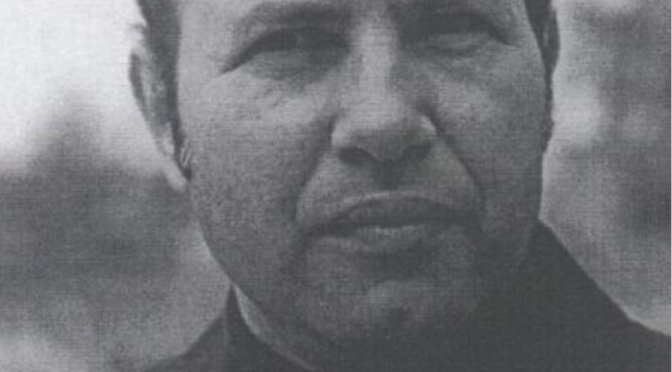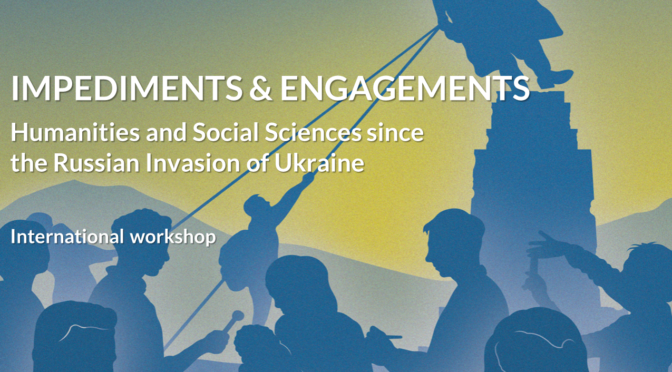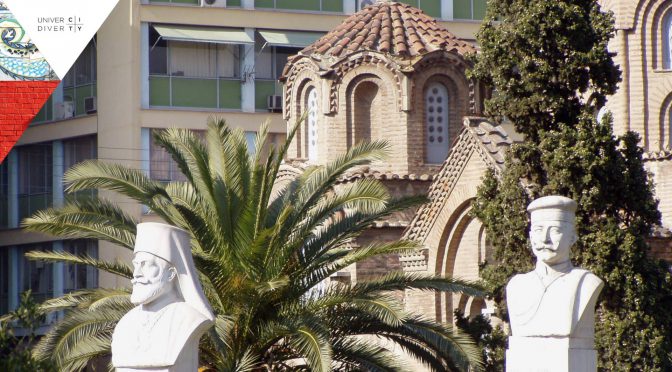
A lecture by Clara Royer (CEFRES) in the frame of the seminar on Modern Jewish History of the ÚSD AV ČR and CEFRES in partnership with the Jewish Museum.
Where: CEFRES library – Na Florenci 3, 110 00 Prague 1
When: 5 pm to 7 pm
Language: English
Abstract
To Imre Kertész, “Auschwitz” was the “Ecce homo” of two thousand years of European Christian culture. Such collapse of the so-called humanist culture led him to undertake a radical criticism of literature and of language. Analysing the totalitarian condition through his literary work, he strove to reconquer a free self through writing. Indeed, this existential practice enabled to become a creator, that is, to turn into the subject of his own creation. But how to create a work of art in such circumstances?
This lecture will try to cast some light on how Kertész strove to become “the Medium of Auschwitz” through a historical approach of the genesis of his literary work. It will appraise the historical and personal conditions of the birth of Kertész’s first published novel, Fatelessness.

IMPEDIMENTS & ENGAGEMENTS. Humanities and Social Sciences since the Russian Invasion of Ukraine
International workshop within the program of the CEFRES non-residential fellowships for Ukrainian scholars in humanities and social sciences, 2023
Location: CEFRES, Na Florenci 3, Prague 1
Date: September 19–20, 2023
It is also possible to participate online. To receive the link, please register at cefres(@)cefres.fr
Language: English
Program

A lecture by Stephan Stach (Institute of Contemporary History, AV ČR) in the frame of the seminar on Modern Jewish History of the ÚSD AV ČR and CEFRES in partnership with the Jewish Museum.
Language: English
Abstract:
During the 1950s and 1960s a number of books on the Holocaust appeared in the German Democratic Republic. They had their origins in the Jewish Historical Institute in Warsaw, the only Holocaust research center in the Eastern Bloc. Among them was Bernard Mark’s Der Aufstand im Warschauer Ghetto (The Warsaw Ghetto Uprising, 1957; originally published in Polish in 1953), the collection of memoirs and diaries Im Feuer vergangen (Lost in the Fire, 1958) and the volume of documents Faschismus-Ghetto-Massenmord (Fascism, Ghetto, Mass Murder, 1960). These books constituted a considerable part of the literature on the Holocaust at the time. They were widely discussed in the press, where authors often used them as evidence of Nazi war criminals holding public office in West Germany at that time. Though their propaganda potential certainly increased the popularity of these publications, their impact went far beyond that. The publications were praised for their literary quality, for instance by the East German critics Victor Klemperer and Arnold Zweig, and met with the interest of the general reading public in East Germany. In my talk, I analyze the reception and perception of these books – and thus the Jewish Historical Institute – between Cold War propaganda and the emergence of an East German Holocaust memory.

In the frame of FF UK Divesity week, the Institute of World History and its partners are organizing a workshop on “Identity Strategies: Heritage and Diversity”
Where: Hybernská 3, Prague 1 (room 303)
What do cultural patrimony, identity and diversity share in common? This question will be tackled during the workshop:
What strategies are in question when speaking about the choice and presentation of UNESCO monuments? Linda Kovářová, who compares the UNESCO monuments in the Czech Republic, Italy and Japan, will speak about this topic more in detail.
Aurore Navarro in her presentation about her research concerning retailers of so-called quality food in Prague is going to persuade us that identities go through our stomach: the food divides and unifies, delimits and designates.
Why the rich breton culture and tradition didn’t become the base for confident regional patriotism? Did the elites of Brittany choose a wrong strategy? Martina Reiterová is going to look for an answer to this question.
Alena Křivánková is going to reveal us who was interested in occitan at the beginning of the French Revolution and why this language didn’t become a link for southern French identity.
Jan Krajíček is going to present us technocratic dreams of František Radouš dating the 1930s, one of those being the idea that an underdeveloped and peripheral region like the Vysočina region constitute an ideal place for modernisation strategies.
Come and join us at this collective brainstorming!
In case you have other ideas, we would like to listen to them in the workshop.
Program
Linda KOVÁŘOVÁ (FF UK) UNESCO a koncept diverzity na příkladě Kutné Hory, Hirošimy a Villa Romana di Casale
Aurore NAVARRO (CEFRES/Université de Lyon) Food quality and retail trade in Prague: heritage, reinvention and innovation.
Martina REITEROVÁ (FF UK): Problematické dědictví? Identifikační strategie bretonských regionalistů přelomu 19. a 20. století.
Alena KŘIVÁNKOVÁ (FF UK): „Okcitánština“ – počátky vědeckého zájmu a sporů o jeden (?) jazyk
Martin THARP (FHS UK): Thomasius’ Legacy or the Language Paradox of European Universities
Jakub NEUMANN (FF UK): Proměny kladenské industriální krajiny ve 20. století
Jan KRAJÍČEK (FF UK): Periferní region jako technologický projekt: modernizace Vysočiny podle Františka Radouše (1939)
See the complete program with abstracts (in Czech) here.

Falk Bretschneider, associate Professor at the EHESS
will be taking part in the seminar called Current Issues. Reflection on Crises organised by CEFRES.
Date: Wednesday, April 21th 2021, 12h30 – 13h50
Where: Online on Zoom.
Organisators: Maria Kokkinou (post-doc at CEFRES / Charles University), Jérôme Heurtaux (CEFRES)
Language: French
Link to join the seminar: https://us02web.zoom.us/j/84097191940
For more information about the programme and the seminar, see the website: http://cefres.cz/fr/seminaires/penser-les-crises.

PhD Students Workshop organized by EHESS and CEFRES will be held on the theme of Humanities and Social Sciences Facing the Unexpected.
Date: April 12, 2021 (9 a.m. – 7 p.m.)
Location: online and at CEFRES (see the link below)
Language: English
Coordination: Falk Bretschneider (EHESS), Jérôme Heurtaux (CEFRES)
Supervisors: Michèle Baussant (CEFRES, CNRS), Falk Bretschneider (EHESS), Emmanuel Désveaux (EHESS), Jérôme Heurtaux (CEFRES), Pavel Himl (FHS UK), Claire Madl (CEFRES), Silvia Sebastiani (EHESS)
The sanitary crisis caused by the Covid-19 pandemic has thrown the whole world into deep uncertainty and radically shaken almost all our habits. This also applies to the research community. Lockdowns, travel restrictions, curfews, closures of libraries or archives and other measures of distance and protection have a direct and sometimes brutal impact on many scientific projects, especially those of many young researchers on fixed-term contracts. This context therefore leads us to question the ways in which humanities and social sciences can deal with uncertainty, the unexpected and the unforeseen, and this in two directions: read more about the workshop here.
Program
9 a.m. Opening by Falk Bretschneider (EHESS) / Jérôme Heurtaux (CEFRES)
9.30 a.m. – 11 a.m.
Introduction: Pavel Himl (FHS UK)
- Arthur Pérodeau (EHESS / UK, associated at CEFRES): Marc Bloch and His Book L’étrange défaite. A Historian Facing the Fall of France
- Tomáš Razím (FHS UK): Oral History in the Time of COVID
11.30 a.m. – 1 p.m.
Introduction: Emmanuel Désveaux (EHESS)
- Miroslav Sedláček (PRF UK): Are Humanities and Social Sciences Strong Enough to Deal with the Unexpected if They Are Overspecialized?
- Zuzana Terry (FHS UK): Facing Unexpected in School Ethnography
Lunch Break
2 p.m. – 3.30 p.m.
Introduction: Silvia Sébastiani (EHESS)
- Maeva Carla Chargros (Palacký University, Olomouc): Rethinking Opportunities & Challenges within an International Context: Networking & Planning
- Elizaveta Getta (FF UK): Challenging Archival Research in Translation Studies
4 p.m. – 5.30 p.m.
Introduction: Michèle Baussant (CNRS, CEFRES)
- Rose Smith (FSV UK / University of Groningen): Wider Acknowledgement of Cyberspace as a Valid Milieu to Do Academic Work in as Well as a Valid Research Context
- Mert Koçak (CEU): Doing “Forced” Digital Ethnography on Forced Displacement: How Does Hyper Visibility/Accessibility of Digital Platforms Affect Ethnography?
6 – 7 p.m. General Discussion
With an intervention of:
- Felipe Kaiser Fernandes (EHESS / CEFRES)
- Tereza Havelková (FF UK)
- Igor Zavorotchenko (FHS UK)
- Ekatarina Zheltova (FSV UK / CEFRES)
To join the meeting: https://us02web.zoom.us/j/83259649736?pwd=RG95RzhyMFlLdjNhUXUzamQzSkhFZz09






